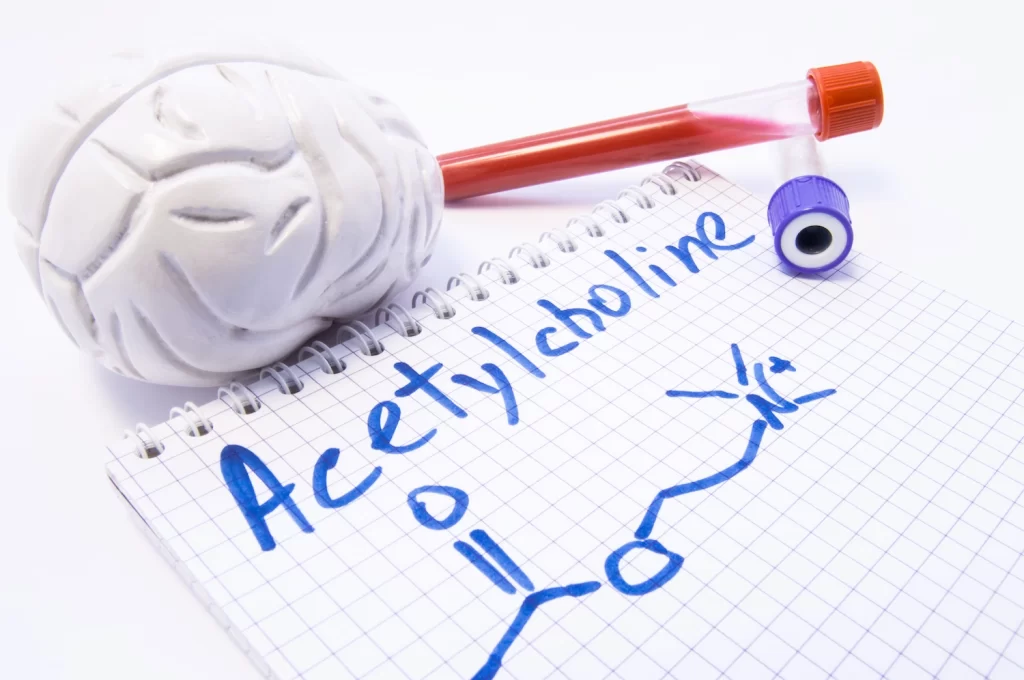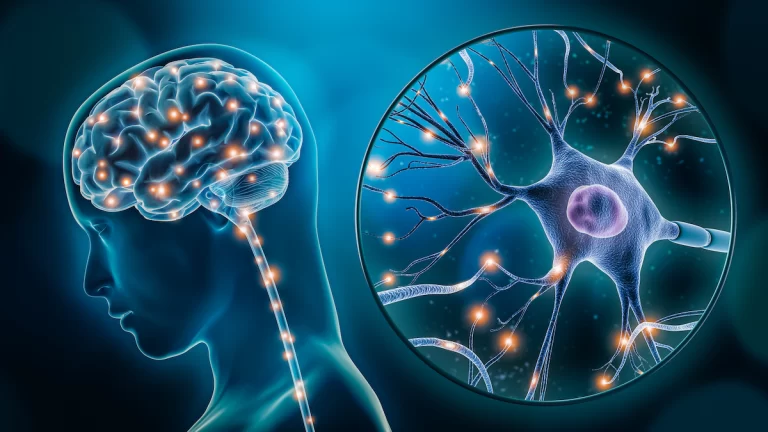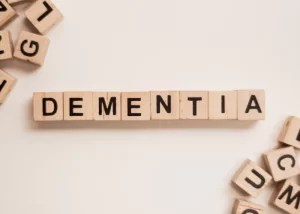Have you ever experienced that feeling of knowing something, but just can’t seem to remember it? Or have you struggled to learn a new skill or remember a list of facts? If so, you may be interested to know that there’s a neurotransmitter in your brain called acetylcholine that plays a crucial role in learning and memory.
But what exactly is acetylcholine, and how does it work? Why do some people seem to have better memory and learning abilities than others? Are there ways to naturally boost the levels of this neurotransmitter in our brains? And how does acetylcholine relate to conditions like Alzheimer‘s disease?
In this article, we’ll explore the fascinating world of acetylcholine, the “memory-enhancing neurotransmitter.” We’ll delve into its functions in the brain, its role in learning and memory, and its link to cognitive disorders like Alzheimer’s disease. We’ll also discuss ways to naturally boost the levels of acetylcholine in your brain, so you can improve your memory and learning abilities. So sit back, relax, and let’s dive into the world of acetylcholine!
What is acetylcholine?
Our brains are incredible machines that process information at lightning speeds, store memories, and regulate our bodily functions. One of the key players in this complex system is a neurotransmitter called acetylcholine. Acetylcholine has been dubbed the “memory-enhancing neurotransmitter” due to its crucial role in learning and memory.
Acetylcholine is a neurotransmitter that plays a crucial role in the nervous system, particularly in the brain and the peripheral nervous system. It was first discovered in 1914 by British physiologist Henry Dale, who also won a Nobel Prize for his work on the substance. It is responsible for transmitting signals between neurons and muscles, making it a crucial component of the nervous system. Acetylcholine is produced in several regions of the brain, including the hippocampus. In addition to its role in muscle contraction, acetylcholine is also involved in a wide range of cognitive functions, including attention, learning, and memory.
Research has also shown that acetylcholine is involved in the regulation of REM sleep, the stage of sleep where most dreaming occurs. In addition, acetylcholine has been implicated in several neurological and psychiatric disorders, including Alzheimer’s disease, Parkinson’s disease, and schizophrenia.
How Does Acetylcholine Enhance Memory?
Acetylcholine enhances memory in several ways. First, it plays a key role in the process of encoding new memories. When we learn something new, the release of acetylcholine in the hippocampus helps to strengthen the connections between neurons, making it more likely that the information will be stored in long-term memory.
Acetylcholine also helps to consolidate memories. During sleep, the release of acetylcholine in the brain is believed to play a critical role in consolidating new memories, allowing them to be more easily retrieved later on.
Finally, acetylcholine is involved in the process of retrieval. When we try to remember something, acetylcholine is released in the brain, helping to activate the neural pathways that are involved in storing the memory.
Studies have shown that acetylcholine levels in the brain are highest during wakefulness and when we are actively engaged in learning or performing a task. Conversely, levels of acetylcholine decrease during sleep, which may explain why we often have difficulty remembering information immediately after waking up.
Acetylcholine and Alzheimer’s Disease
Alzheimer’s disease is a neurological disorder characterized by progressive cognitive decline, memory loss, and difficulty with daily activities. One of the hallmark features of Alzheimer’s disease is a decrease in the levels of acetylcholine in the brain.
In the brain, acetylcholine is produced by neurons that are damaged in Alzheimer’s disease. As a result, there is a significant reduction in the amount of acetylcholine released into synapses, which can lead to impaired memory and cognitive function.
To address this, one of the main treatments for Alzheimer’s disease involves the use of drugs that increase the levels of acetylcholine in the brain. These drugs, known as cholinesterase inhibitors, work by preventing the breakdown of acetylcholine, allowing more of the neurotransmitter to be available in the brain.
Studies have shown that drugs that increase the levels of acetylcholine in the brain, such as cholinesterase inhibitors, can improve memory performance in people with Alzheimer’s disease and other forms of dementia.
How to Boost Acetylcholine Levels Naturally
While there are medications available that can increase acetylcholine levels in the brain, there are also natural ways to boost levels of this important neurotransmitter.
Neurofeedback: The specialised therapy known as neurofeedback uses current brain wave technologies to transport your brain on a happy and uplifting journey. It assists in regulating and boosting brain activity and enables you to participate in the process of your brain’s recuperation. Neurofeedback is a form of brain training that makes advantage of the neuroplasticity—the brain’s innate capacity for change and progress.
Photobiomodulation: It is a type of low-level light treatment that uses LEDs or lasers to give visible and near-infrared light to the body to heal tissue. Our facility specializes in employing photobiomodulation to treat a range of mental health issues. Through a process called photobiomodulation, the activities of glial cells and neurons are improved. An increase in the creation of the molecule ATP serves as the primary mechanism of photobiomodulation.
TMS: A non-invasive procedure called transcranial magnetic stimulation (TMS) targets particular parts of the brain with repeated magnetic energy pulses. This therapy is utilized as a gentle treatment for a variety of mental health conditions, such as depression, addiction, autism, post-traumatic stress disorder, anxiety disorders, and obsessive-compulsive disorder.
Sunlight exposure: Exposure to sunlight helps the body produce vitamin D, which in turn can increase the production of acetylcholine in the brain. Spending time outdoors on a regular basis can also help to improve mood and cognitive function.
Dietary changes: Consuming foods that are rich in choline, a precursor to acetylcholine, can help to boost levels of this neurotransmitter in the brain. Foods that are high in choline include eggs, nuts, and broccoli.
Exercise: Regular exercise has been shown to increase the production of acetylcholine in the brain. Exercise also increases blood flow to the brain, which can help to support cognitive function.
Sleep: Getting enough restful sleep is essential for optimal cognitive function, including memory. During sleep, the brain consolidates memories and clears out toxins that can interfere with cognitive function. Getting at least 7-8 hours of sleep per night can help to support healthy acetylcholine levels in the brain.
Meditation: Regular meditation practice has been shown to increase the production of acetylcholine in the brain. Meditation can also help to reduce stress, which can have a negative impact on cognitive function.
Conclusion
In conclusion, acetylcholine is a crucial neurotransmitter that plays a vital role in memory formation, consolidation, and retrieval. While the levels of acetylcholine naturally decrease with age, there are several natural ways to boost the levels of this neurotransmitter in the brain, including regular exercise, sunlight exposure, dietary changes, meditation, and quality sleep.
Furthermore, the link between acetylcholine and Alzheimer’s disease highlights the importance of this neurotransmitter in cognitive function and its potential as a therapeutic target for the treatment of neurological disorders.
By understanding how acetylcholine works in the brain, we can take steps to naturally enhance cognitive function and memory, promoting healthy brain aging and potentially improving the lives of those with neurological and psychiatric disorders.
Elumind Centres for Brain Excellence is an integrated mental health centre offering solutions that can help you with your mental/brain health needs. To start your journey, book your FREE 15-MINUTE PHONE CONSULTATION. We are here for you.









